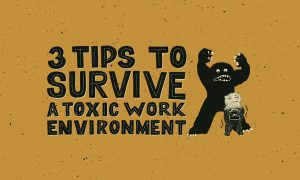Managing an Unbearable Workload: When Resting Isn’t Enough
Written by Alpha Asia Pacific
You are going through an intense season, and the work never stops. “Time for a break, please!” a small voice in your head says.
You continue anyhow, convincing yourself that the weekend will soon be here. You give up a few nights of sleep, knowing you’ll just catch up on rest after.
Then, the weekend finally arrives, or you go on a holiday trip, and it’s amazing! But too soon it’s Sunday night again and you start dreading what’s coming: an avalanche of emails in your inbox.
While it is good to work hard where God has placed us, it is not right for our jobs to consume us. Are we constantly worrying about deadlines in the back of our minds? Do we keep checking our messages even during “off” hours? Are we letting our jobs infringe on the other good work God is doing in our lives?
Before we delve into the “how to”, let’s first remember that work is not all there is in life, as the book of Ecclesiastes reminds us; ultimately, we are to look to our Creator (12:1) and put Him first (v.13). We work for Him and answer to Him (Colossians 3:23). May this be the perspective that anchors us.
Given that, what can we try to do when the feeling of dread and unbearable workload doesn’t go away after a weekend of rest?
Here are 3 ideas to try when facing an unbearable workload:
1. Increase your capacity: recruit and release
When our workload expands, we often resort to doing more on our own. But perhaps we should consider involving others by increasing the capacity to share the workload.
In Exodus 18, Moses is visited by Jethro, his father-in-law, at the height of his ministry to the people of Israel. Jethro observes Moses’s heavy workload in judging every dispute that arises among the Israelites, and points out that Moses is not able to handle the world load himself. So, Jethro advises him to select and train other godly men as judges to judge the simpler cases, and have them refer only the most difficult ones to him (Exodus 18:17-23).
Though our work may not look like Moses’s, Jethro’s advice remains true to us today. Whatever our work or our position, we can pray about what our primary responsibilities are and what we can pass on to others.
For leaders in the workplace, we can prayerfully discern our role, knowing what only we can do. For other responsibilities, we can invite others’ involvement. Delegation isn’t an abdication of tasks: it is an opportunity to empower others to be involved.
We can prayerfully and thoughtfully seek out people best suited to these responsibilities, then recruit them to the task and teach them how to do it (teaching means to “show them the way” rather than just telling them what to do).
For those of us not in leadership positions, we can still practise the same principle by recognising the key responsibilities given our roles. We may not be able to delegate tasks to others, but we can start by sorting out our priorities and doing those well. We can build relationships with our colleagues and draw on one another’s strengths.
2. Decrease the demand: re-prioritise and re-define
When speaking of the kingdom of God, Jesus compared being a disciple to a king counting his costs before going to war, reminding us to understand and acknowledge the cost of following him (Luke 14:31-33).
Though prioritizing work tasks is a far cry from choosing to follow Christ, the practice of counting costs is still a good idea.
One saying worth repeating is, “Not everything good is right, not everything right is now, and not everything now is mine.”
So let’s ask ourselves, “Is everything I am doing what I should be doing now?”
It can be helpful to evaluate our tasks using the “Impact vs Effort” matrix, which allows us to rank projects according to impact (effect, contribution to the big picture) and the amount of work (time, resources) needed to complete them.
For high-effort, but low-impact activities—tasks that demand a lot of time and energy but don’t actually contribute much to your team or company, or your own growth—Eliminate them. Talk to your boss and make a case for the work that you do want to focus on, and show them how these particular tasks take up unnecessary time.
For low-effort but low-impact activities (e.g. emails, social media postings)—Scheduling them to specific times of the day or week is more efficient than doing them sporadically.
For low-effort but high-impact activities (e.g. brainstorming, conceptualising a new project/campaign)—Celebrate them and pass it on! Aside from being quick wins, they represent something you could teach to others if you know how to break them down and explain how to accomplish them.
Finally, and most importantly: prioritise high-effort and high-impact tasks. These are usually key projects that bring in key results for the team and company, that will really put your skills to the test and make you grow.
3. Improve and innovate: re-think and re-imagine
Our God is a creative God who works in different, wondrous ways. He has reached into human history and creatively led people—Abraham, Jacob, Joseph, the Israelites, the prophets—into new places and new stages of life, telling them to move with Him, to work hard wherever He places them, and to always depend on Him wholeheartedly.
Though our work and capacity are on a much smaller scale than God’s, we are still given the ‘creative’ ability; we can put our creativity to use and seek new ways of looking at old tasks.
Here are three steps to consider as you look to improve ways of working:
1) Define the problem clearly
Start by asking the question, “What is the real roadblock here?” Be honest and specific; ask “why” a few times until you get to the real root of the issue. Asking open-ended questions are often the most fruitful when trying to discover more information.
Try to arrange a meeting with your manager to go over the list of responsibilities together, starting with the least sensitive or difficult ones to establish a rapport before escalating gradually.
Make sure to focus on the problem by describing the situation at hand and avoid pointing fingers at people and playing the blame game.
2) Determine the conditions for success
What are the conditions—resources, people, timeline, support—you need to accomplish the task? List them down one by one and draw up specific steps for how to get to them.
Sometimes, we don’t get what we need because we’ve not really asked. Perhaps we’ve assumed it’s impossible to get what we need, or we tried once (and tried only one way of asking) and we’ve not gotten any response, or we’ve been rejected.
When there’s no access to additional resources, the next best thing is to share the roadblocks with your teammates and do what you can, using what you have, to work together, all while consistently giving feedback to the leaders during meetings or through surveys.
3) Explore different ways to accomplish a new solution.
Don’t be afraid to experiment with new ways of working. Test and try. Could a task be automated, or outsourced, or simplified? Is there a digital solution? An expert who is doing this in a smarter way, whom I can learn from?
Pray for wisdom, then try talk to different people, doing your research, and starting with small changes that are most doable.
Ultimately, these steps will only go so far in managing the workload at one’s job. At the end of the day, we will not fix all the problems at work, and there will be seasons of intense effort. That is normal.
The best we can do is pray for God’s strength and joy to sustain us, and know that, however difficult the days, He will carry us through.
This article was originally published on Alpha Asia Pacific’s website here. This version has been edited by YMI.
Alpha is an effective form of evangelism when done by and through the local church. By focusing on the essentials of the Christian faith, it opens the door for Alpha to be used in almost any context so that everyone has the opportunity to see their friends’ lives transformed by the gospel. Churches are now able to run the Alpha sessions online through various video conferencing platforms. To find out more, go to https://asiapacific.alpha.org/














Leave a Reply
Want to join the discussion?Feel free to contribute!